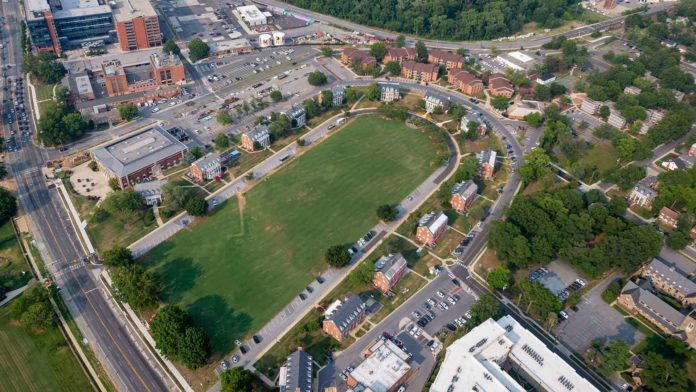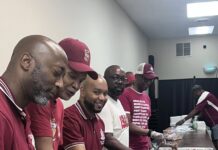Agora on Fraternity Row to Provide Space for Members of Multicultural Greek Council, National Pan-Hellenic Council
The University of Maryland is creating a space on Fraternity Row for student members of cultural interest fraternities and sororities to foster a more inclusive Greek life environment on campus.
The Agora, which roughly means “gathering place” in ancient Greek, will be a non-residential space exclusively for undergraduate members of the Multicultural Greek Council (MGC) and the National Pan-Hellenic Council (NPHC) and their guests. Located at #4 Fraternity Row, a house last occupied by the Alpha Epsilon Pi fraternity, the space is slated to open before spring break.
In addition to the $1.2 million the university has already invested in the project, the Student Government Association last week gave $97,400 to the Agora project, part of $175,400 of surplus money allocated to support various student services and programs.
“This is a perfect opportunity to be able to meet the needs of our students in our NPHC and MGC organizations, to be able to make a formal commitment to elevate their needs, to have a programming, activity and event space, and to start to break down the Baltimore Avenue divide,” said Matthew Supple, director of the Department of Fraternity and Sorority Life (DFSL).
UMD built the houses on Fraternity Row in the 1950s and ‘60s, but didn’t offer MGC and NPHC members the opportunity to acquire their own spaces, Supple said. This led to those students feeling unsafe, unrecognized and excluded in this area of campus; that problem was exacerbated by some UMD fraternities’ pasts marked by racism, which included discriminatory membership practices and blackface performances or minstrel shows through the 1960s.
The pandemic and racial reckoning of 2020 helped spur an overall reevaluation of values, said Lorae Bonamy, DFSL senior coordinator for equity and social justice. That’s when conversations and planning around the Agora really began to take hold.
“Something that we really deeply believe in fraternity and sorority life is that these organizations can be the most transformative part of the college experience,” Bonamy said. “We know that historically, that hasn’t shown up in a positive way. So we’re wanting to make a step and say, ‘Hey, there’s a space for everyone.’ We’ve been saying this, and now we’re really creating that.”
Her department worked with MGC and NPHC members throughout the process, holding town halls and other meetings to learn how they envisioned the facility. Staffers found that many students already lived together in houses or apartments and weren’t looking for a residential space, but rather a general gathering place where they could have chapter meetings, store their organizations’ belongings, perform show rehearsals and more.






















